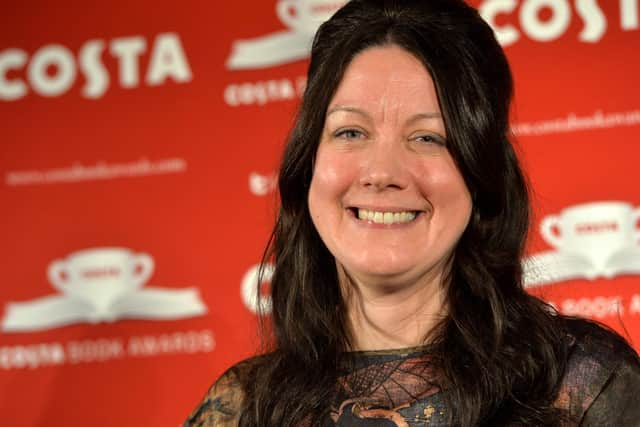Book review: Prophet, by Helen Macdonald and Sin Blaché
This novel is something of a curveball. Readers drawn to the name of Helen Macdonald, thinking it will be something in the vein of the award-winning and best-selling H Is For Hawk might be somewhat discombobulated. If you were expecting more about the environment and the nature of nature, then a science fiction romp might be slightly outside your comfort zone. That said, if you do like science fiction romps then you are in for a treat. In a recent interview the authors have said – not entirely ironically, nor wholly cashing in – that the novel is “Barbie meets Oppenheimer”. The thing is it is a true reading of their own work, even if it was co-written in lockdown when neither film had been released.
It has a very strong concept. Somehow, things from people’s memories are appearing randomly; so a 1950s diner in immaculate condition in a field, although it lacks certain features. It has electricity but no connection to the grid. Then a military base is inundated with treasured recollections. But there has been a death, when someone immolated themselves in the memory of a childhood bonfire. So the shadowy powers-that-be call in investigators.
Advertisement
Hide AdCleverly, the novel sticks with the classics. In this case it’s a mismatched pair. Sunil Rao is erratic, obnoxious, a former heroin addict who has been in various war zones. He also has a peculiar gift in that he can tell intuitively the difference between truth and lie, genuine and forgery. He is teamed up with Adam Rubenstein, a military man who is a kind of vacuum or vacancy, a robot-like creature of orders. He too has a kind of gift. Rao cannot read him, so he is the only person who can lie to him. They have worked together before, in situations where Rao was at his lowest and Adam at his most proficient.


This is a strong conceit: the truth-teller and the inscrutable faced with the unimaginable. That there is a lingering sense of attraction between them only makes this more piquant. The bickering and bantering is all done with a degree of knowing wit, even when it is evident that each is testing the other’s capabilities. The Prophet of the title transpires to be a – well, something will have to do: a mycological byproduct? A trans-dimensional consciousness? A perpetually mutating new virus? – a thing, and a valuable thing at that. If Prophet has the ability to allow people to reify things, to make their imaginations manifest, then that might be a tactical advantage on the battlefield.
The Barbie / Oppenheimer elevator pitch really works. This is about weaponised nostalgia. Later in the book our heroes encounter a new variant of Prophet’s creations, in the form of children’s toys that are animate and vicious. There is also a chilling scene with a character who has been dosed with Prophet, and is busily conjuring a former America, which she is making great again.
In terms of its aesthetics, Prophet resembles television more than literature. If you like such shows as Twin Peaks, Stranger Things and Lost you will no doubt like this. There is even a little wink at The X-Files. It has that sense of creepiness, which is often missing from books dubbed as horror. But it does deliver on its premise. Walter Scott, reviewing The Modern Prometheus, wrote “In the class of fictitious narrations to which we allude, the author opens a sort of account-current with the reader; drawing upon him, in the first place, for credit to that degree of the marvellous which he proposes to employ; and becoming virtually bound, in consequence of this indulgence, that his personages shall conduct themselves, in the extraordinary circumstances in which they are placed, according to the rules of probability, and the nature of the human heart.” This seems to me a very fair way of considering this novel: the remarkable is happening, but the humanity is unchanging.
Might one detect which parts are written by Sin Blaché and which by Helen Macdonald? That seems to me to be a game to play later. I am sure that either might describe a vulture. That it is a collaboration is interesting, but non-essential. It does not seem akin to Q written under the pseudonym “Luther Blissett” by the Wu Ming Foundation, where it was obvious that there was a kind of relay – two writers wrote chapters about one character, then passed the baton to the other two who wrote from another character’s perspective.
I would expect most readers will race to reach the ending. Is there an explanation? I cannot give that away. Is there a resolution? Yes, albeit one that would not be out of place in one of the more sentimental Doctor Who episodes. It is a book to read for the atmosphere and the antics, and the smart nudges at various pulp books and references, from Bond villains to Philip K Dick are like the flake in your 99. I wonder where the next swerve will come from, since they have written a book both entertaining, erudite and eerie.
Prophet, by Helen Macdonald + Sin Blaché, Jonathan Cape, £18.99. Helen Macdonald and Sin Blaché are appearing at Edinburgh International Book Festival on 28 August.